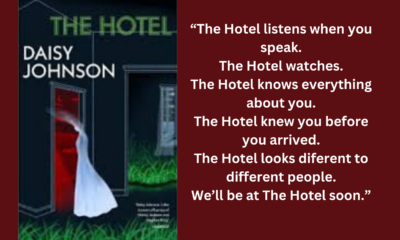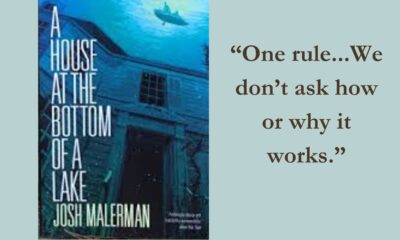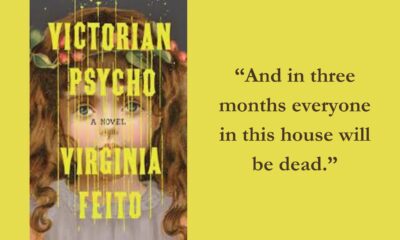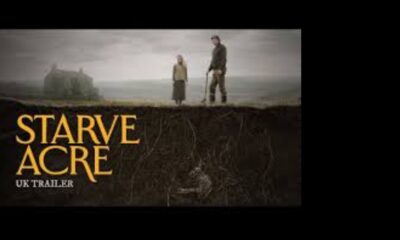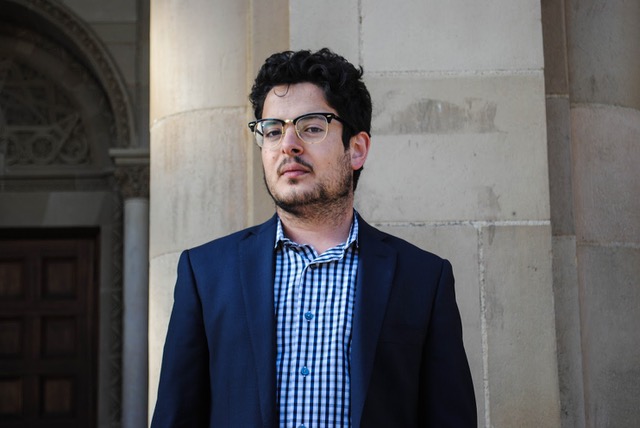
Haunted MTL Original – A Sense of Justice – Omar ZahZah
More Videos
Published
4 years agoon
By
Shane M.“A Sense of Justice” by Omar ZahZah
Sometimes I wonder if part of what draws people in to a good ghost story is a sense of justice. Of course there’s a lot of chaos ghosts can wreak. No denying that. But sometimes, also, the ghosts can be more powerful than the living bodies they inhabited in one important way: they can finally realize the revenge they were too powerless to claim in life, maybe because the victimizer was too powerful socially, politically, or whatever else.
I know this was the case with my father.
I don’t know much about his life before he was a cop—we never talked about anything, and my first major goal in life was to get out of that house as soon as possible—but he was definitely one of those people who personified their job, if that makes sense, and in all the wrong kinds of ways. He enforced “the law” with a gun and baton outside, day and night, and when it came to “order” in his house (my mom and I were never credited with much of anything) he wasn’t shy about using his hands—knuckles, fists, palms… that’s pretty much all I’m going to say about that. But I think it’s enough to give a pretty good image of what life with him was like.
I’ve wondered about this a lot. You know, sometimes, I get to thinking about how informal personal relationships are, and what that can mean for how you treat people. After all, once the courtship is over, the mask can come off. You don’t need to do much work on yourself, especially if, like my father, you came from a world where your wife, like your child, is your property. The family’s been wooed, the house moved into, and that’s it—the trap snaps shut.
Maybe for these reasons, it’s not totally accurate to connect his home life to his work life—maybe the senses of entitlement were different, I mean—but I as I grew I couldn’t help but think, even as I was slowly learning how to exorcise my internal impressions with words, that someone who could treat his wife and son in the way he did would be a terrifying force to come across while he was on patrol.
There was never a time when I wasn’t afraid of him. Even during the morning, when he was supposedly at his most vulnerable because he was technically still groggy and coming to, I couldn’t stand to be near him. I can still see him now, sitting at that tiny kitchen table with the rose-patterned table-cloth in his sleeveless cotton shirt and underwear, always wearing the gaudy gold watch (a gift from his father) and dog tags from his army days he never took off, slowly slurping his black coffee and pawing at the paper. Eventually, he would light his first cigarette, and the stinging smell and fumes of the tobacco would blur into the scent and steam of the coffee (I can’t stand either cigarettes or coffee to this day.) No matter how quiet I was, how far I stood away or how small I tried to make myself, he’d always eventually look up at me, standing there in my pajamas and bare feet and, like a great evil demon with all that smoke and steam coming out of his nostrils, mouth, smoking hand and coffee cup, holler at me to get the hell out.
The thing about fiction is that you get to reduce people into caricatures. Human beings are typically complex, and made up of contradictions. So in expressing all this about my father now, I’m self-conscious about how it comes across. And, perhaps against some better judgement, I’m trying to find some empathetic moment, some selfless gesture, to balance all this out. But I just can’t. Maybe sometimes, reality can operate like fiction, after all. Or maybe that’s how it comes across to us.
Even the paper he didn’t read much. He was usually looking for some reference to a case he worked, some incident he was involved in. He was obsessed with that. Some nights he would bring his buddies over for beers, and all of them would laugh so hard they would get to screaming over pictures of the prostitutes they’d start handing around. Sometimes he’d call for me to come down (it was supposed to be my bedtime, but that, like any other boundary me or my mom would try to uphold, never mattered when he was drunk.) He’d show me one of the photos, and if he didn’t like my response, I’d get a backhand across the mouth, which would inspire a new wave of laughter from him and his friends. I remember falling asleep with the blood on my lips still wet and waking up to it dried on my pillow the next day.
It was more than just the photos, too. Especially back in those days, cops didn’t get questioned for much of anything. They were always the “respectable” ones in a court of law, no matter what the charges were, and it felt as though the judges and the local press tried to outdo one another when it came to fawning over the boys (and yes, back then it was always the boys) in blue. We certainly didn’t have anything like the internet today.
And that’s the truly terrible thing: it didn’t matter what my father or one of his buddies on the force was accused of. To this day, I get sick thinking of some of the charges. I can’t even bring myself to name them here, because it feels futile; he always got off scot-free, even—you might say especially—when it came to shooting down civilians, and civilians of color, to be more specific. His testimonies might as well have been written down in the Bible, because the word of a white cop against a Black or brown individual or family was received as though it came from heaven on high. He was untouchable, and he acted on it every day.
Like today, the killings that my father or one of his buddies took part in would lead to demonstrations. Unlike today, though, there was nothing to counter the local media’s demonization of activists. And since my dad and his buddies usually ended up being the police detail assigned to those actions, my mom and I would usually be regaled by stories about all the “skulls I’d cracked today,” usually replete with poisonous slurs.
I don’t really remember when the activity started. I wish I could pinpoint a trigger of some kind, but even all these years later, I really couldn’t tell you what it might have been. As far as I know, my father was never held accountable to a single thing he’d done in his life, which only seemed to inspire him to become more vicious in his violence, more confident in his cruelty.
But all the same, strange things started happening. And they began with me.
One night—I must have been about twelve at the time—I had just finished brushing my teeth and was about to climb into bed, when I saw something startling: my dad’s gun was sitting, upside down, with the muzzle pointed in my direction, in the center of my bedroom floor.
Now, there were only two places that gun would have ever been in my house: next to my father’s bedside, or possibly in his gun-safe (though he usually just kept that for show—he preferred having his gun on or near him as often as possible.) The last place it should have been was anywhere near me. And it’s position on the floor was, to put it bluntly, impossible; what was holding its balance? Why didn’t it fall?
Nevertheless, there it was.
Believe it or not, though, as ominous as it was to have that gun facing me, what scared me more wasn’t how the gun had gotten there, or whatever it was that put it there or was holding it in place, but what I was going to do with it now that it was here. If I took it back to my mom and father’s bedroom, there was no way they would believe it had just magically shown up and turned itself on its head all on its own, and my father had beaten me for less.
I climbed into bed and turned out the lights.
Next morning when I woke up the gun was gone, but any relief I might have felt was short-circuited when I heard my father roaring in anger. I ran downstairs to see him raging at my mother, who was on the floor, crying, and trying to back away. I’ll never forget how big his eyes were, how he kept yelling and, while my mom cried, raised his gun to her face and pulled the trigger.
So many things seemed to happen in the split second between his finger squeezing the trigger and the internal firing pin striking the cartridge primer: I, who was usually so terrified of my father I could barely say so much as a word to him, screamed out for him to stop, and my mom wailed and put her hands in front of her face, turning her head away. But what was also bizarre was what happened next.
Nothing.
The gun just let out a hollow click. This seemed to surprise my father, who turned his attention to the gun in his hand and began to take it apart. Meanwhile, I ran down to my mom. Our gazes were temporarily diverted in our mutual embrace, our tears, and our trembling so sharply from fear and relief that it felt as though we were one giant bush whose thin, nervous branches were being shaken back and forth by a mischievous kid.
What brought our attention back to my dad was his question: “Did you do this?”
We looked up to see the gun dismembered, an emptied magazine in his hand.
It wasn’t what he asked, but the way he asked it: it was hesitant, confused. As unsympathetic as my father was, even he couldn’t escape the fact that neither me nor my mom knew how to use that gun, much less take it apart. He was the only one who could have taken the cartridges out, and he was the last person who ever would have done such a thing. He turned and left us to go to the kitchen, shaking his head.
A few nights later, something similar happened. I’d just finished brushing my teeth and was about to climb into bed when I was a series of rounds arranged in a spiral shape on my bedroom floor. I knew these were rounds from my father’s gun. And just like before, I was more afraid of my dad than whatever seemed to be messing with his gun, so I turned out the light and went to sleep.
Sure enough, when I woke up the next morning, the rounds were gone, and when I made my way downstairs my dad was drinking his coffee, smoking his cigarette, and reading the paper, the pages crinkling and the smoke and steam blowing this way and that. But this morning, as he took his last sip, he began to sputter and gag; the retching and gagging sounds continued, tears and saliva ran down his face, until, finally, he was able to spit up whatever it was in the coffee that was tormenting him so onto the rose table-cloth.
A round.
It sat there, wet, sleek, and gleaming with spit under the weak kitchen light. And that’s when my dad slowly looked up and saw me. He was too dazed to be able to scream at me like he usually did, but the rage in his eyes flashed at me all the same, and I ran out of there.
And I knew just what it was, too: he was even angrier that I’d seen him in a moment of fear, confusion, and vulnerability. It was like catching him with his pants down.
Things continued on like that for some time, with objects going missing and then turning up in unexpected places. He beat the hell out of me when he found his badge in the toilet. Of course he wouldn’t believe it wasn’t me.
The activity not only continued, but it escalated and eventually peaked with my father’s death. He’d been shot in the head with his own gun, and forensics confirmed that there was no mitigating, suspicious circumstances, but I’ve still never been able to fully believe it was suicide. Even if he died by his own hand, I can’t help but feel that something helped him along.
There’s so much talk about haunted houses, but the smallest objects can have the most devastating impacts, too. My dad, who was physically the biggest man out of anyone he knew, as well as symbolically the biggest authority to all who were under his jurisdiction, personal or professional, had been undone by the tiny sabotage of some of the smaller items that made up his aesthetic of power. To this day, I can’t help but think that there is more than a little poetic irony in that, and probably the most comprehensive justice for all of those who were unable to claim it in life.
Omar Zahzah is a Palestinian American activist, writer, poet and horror enthusiast whose work has appeared in various publications. Omar holds a PhD in comparative literature from UCLA, with the subject of Omar’s doctoral thesis being the ways in which African American and Arab American activists and writers use literature as a means of contesting racialized state projects of policing and surveillance.
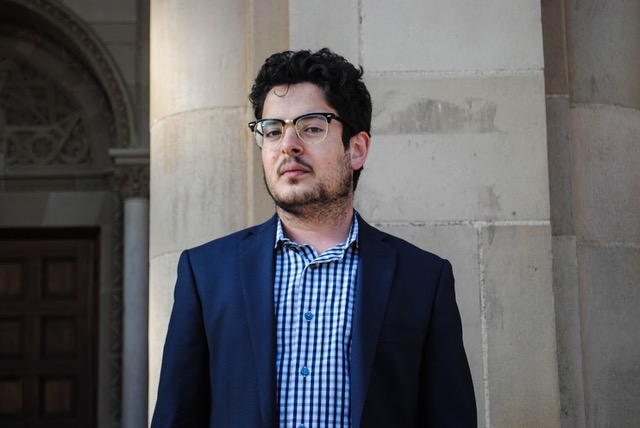
You may like
Original Creations
Goodbye for Now, a Short Story by Jennifer Weigel
Published
21 hours agoon
March 30, 2025What if ours weren’t the only reality? What if the past paths converged, if those moments that led to our current circumstances got tangled together with their alternates and we found ourselves caught up in the threads?
Marla returned home after the funeral and wake. She drew the key in the lock and opened the door slowly, the looming dread of coming back to an empty house finally sinking in. Everyone else had gone home with their loved ones. They had all said, “goodbye,” and moved along.
Her daughter Misty and son-in-law Joel had caught a flight to Springfield so he could be at work the next day for the big meeting. Her brother Darcy was on his way back to Montreal. Emmett and Ruth were at home next door, probably washing dishes from the big meal they had helped to provide afterward, seeing as their kitchen light was on. Marla remembered there being food but couldn’t recall what exactly as she hadn’t felt like eating. Sandwiches probably… she’d have to thank them later.
Marla had felt supported up until she turned the key in the lock after the services, but then the realization sank deep in her throat like acid reflux, hanging heavy on her heart – everyone else had other lives to return to except for her. She sighed and stepped through the threshold onto the outdated beige linoleum tile and the braided rag rug that stretched across it. She closed the door behind herself and sighed again. She wiped her shoes reflexively on the mat before just kicking them off to land in a haphazard heap in the entryway.
The still silence of the house enveloped her, its oppressive emptiness palpable – she could feel it on her skin, taste it on her tongue. It was bitter. She sighed and walked purposefully to the living room, the large rust-orange sofa waiting to greet her. She flopped into its empty embrace, dropping her purse at her side as she did so.
A familiar, husky voice greeted her from deeper within the large, empty house. “Where have you been?”
Marla looked up and glanced around. Her husband Frank was standing in the doorway to the kitchen, drying a bowl. Marla gasped, her hand shooting to her mouth. Her clutched appendage took on a life of its own, slowly relinquishing itself of her gaping jaw and extending a first finger to point at the specter.
“Frank?” she spoke hesitantly.
“Yeah,” the man replied, holding the now-dry bowl nestled in the faded blue-and-white-checkered kitchen towel in both hands. “Who else would you expect?”
“But you’re dead,” Marla spat, the words falling limply from her mouth of their own accord.
The 66-year old man looked around confusedly and turned to face Marla, his silver hair sparkling in the light from the kitchen, illuminated from behind like a halo. “What are you talking about? I’m just here washing up after lunch. You were gone so I made myself some soup. Where have you been?”
“No, I just got home from your funeral,” Marla spoke quietly. “You are dead. After the boating accident… You drowned. I went along to the hospital – they pronounced you dead on arrival.”
“I don’t know what you’re talking about,” Frank said. “What boating accident?”
“The sailboat… You were going to take me out,” Marla coughed, her brown eyes glossed over with tears.
“We don’t own a sailboat,” Frank said bluntly. “Sure, I’d thought about it – it seems like a cool retirement hobby – but it’s just too expensive. We’ve talked about this, we can’t afford it.”
Marla glanced out the bay window towards the driveway where the small sailboat sat on its trailer, its orange hull reminiscent of the Florida citrus industry, and also of the life jacket Frank should have been wearing when he’d been pulled under. Marla cringed and turned back toward the kitchen. She sighed and spoke again, “But the boat’s out front. The guys at the marina helped to bring it back… after you… drowned.”
Frank had retreated to the kitchen to put away the bowl. Marla followed. She stood in the doorway and studied the man intently. He was unmistakably her husband, there was no denying it even despite her having just witnessed his waxen lifeless body in the coffin at the wake before the burial, though this Frank was a slight bit more overweight than she remembered.
“Well, that’s not possible. Because I’m still here,” Frank grumbled. He turned to face her, his blue eyes edged with worry. “There now, it was probably just a dream. You knew I wanted a boat and your anxiety just formulated the worst-case scenario…”
“See for yourself,” Marla said, her voice lilting with every syllable.
Frank strode into the living room and stared out the bay window. The driveway was vacant save for some bits of Spanish moss strewn over the concrete from the neighboring live oak tree. He turned towards his wife.
“But there’s no boat,” he sighed. “You must have had a bad dream. Did you fall asleep in the car in the garage again?” Concern was written all over his face, deepening every crease and wrinkle. “Is that where you were? The garage?”
Marla glanced again at the boat, plain as day, and turned to face Frank. Her voice grew stubborn. “It’s right here. How can you miss it?” she said, pointing at the orange behemoth.
“Honey, there’s nothing there,” Frank exclaimed, exasperation creeping into his voice.
Marla huffed and strode to the entryway, gathering her shoes from where they waited in their haphazard heap alongside the braided rag run on the worn linoleum floor. She marched out the door as Frank took vigil in its open frame, still staring at her. She stomped out to the boat and slapped her hand on the fiberglass surface with a resounding smack. The boat was warm to the touch, having baked in the Florida sun. She turned back towards the front door.
“See!” she bellowed.
The door stood open, empty. No one was there, watching. Marla sighed again and walked back inside. The vacant house once again enveloped her in its oppressive emptiness. Frank was nowhere to be found.

So I guess it’s goodbye for now. Feel free to check out more of Jennifer Weigel’s work here on Haunted MTL or here on her website.
Today on Nightmarish Nature we’re gonna revisit The Blob and jiggle our way to terror. Why? ‘Cause we’re just jellies – looking at those gelatinous denizens of the deep, as well as some snot-like land-bound monstrosities, and wishing we could ooze on down for some snoozy booze schmoozing action. Or something.
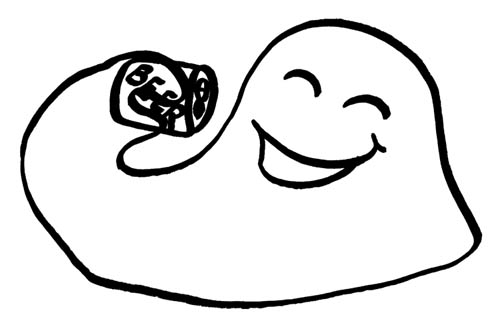
Honestly, I don’t know what exactly it is that jellyfish and slime molds do but whatever it is they do it well, which is why they’re still around despite being among the more ancient organism templates still in common use.
Jellyfish are on the rise.
Yeah, yeah, some species like moon jellies will hang out in huge blooms near the surface feeding, but that’s not what I meant. Jellyfish populations are up. They’re honing in on the open over-fished ocean and making themselves at home. Again.
And, although this makes the sea turtles happy since jellies are a favorite food staple of theirs, not much else is excited about the development. Except for those fish that like to hide out inside of their bells, assuming they don’t accidentally get eaten hanging out in there. But that’s a risk you gotta take when you’re trying to escape predation by surrounding yourself in a bubble of danger that itself wants to eat you. Be eaten or be eaten. Oh, wait…
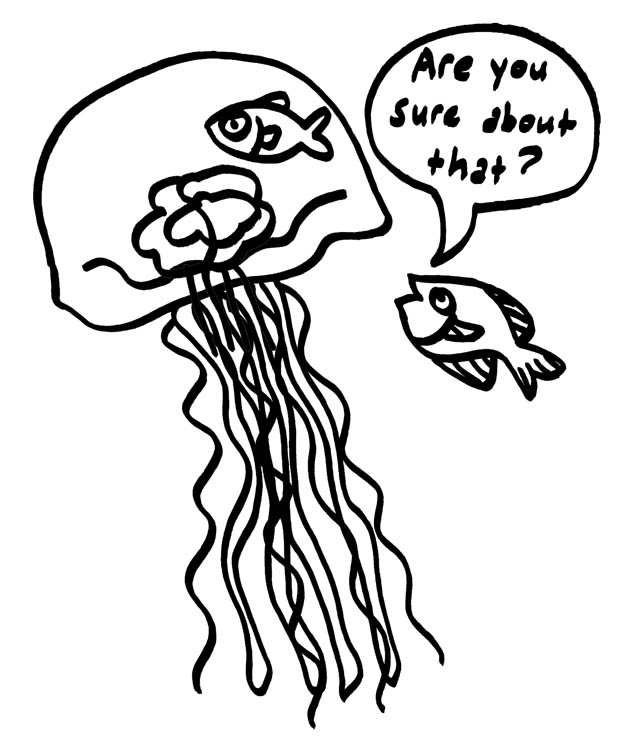
So what makes jellies so scary?
Jellyfish pack some mighty venom. Despite obvious differences in mobility, they are related to anemones and corals. But not the Man o’ War which looks similar but is actually a community of microorganisms that function together as a whole, not one creature. Not that it matters when you’re on the wrong end of a nematocyst, really. Because regardless what it’s attached to, that stings.
Box jellies are among the most venomous creatures in the world and can move of their own accord rather than just drifting about like many smaller jellyfish do. And even if they aren’t deadly, the venom from many jellyfish species will cause blisters and lesions that can take a long time to heal. So even if they do resemble free-floating plastic grocery bags, you’d do best to steer clear. Because those are some dangerous curves.
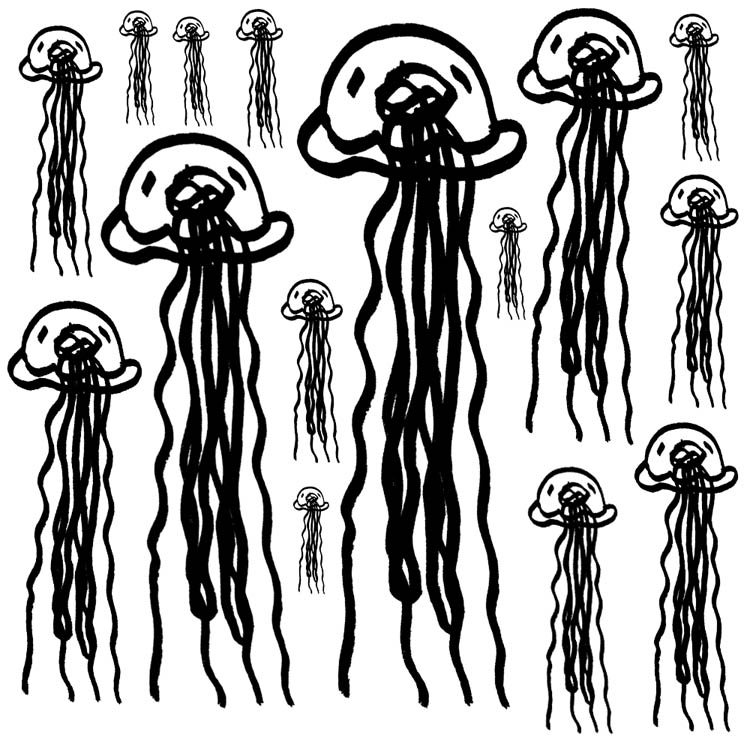
But what does this have to do with slime molds?
Absolutely nothing. I honestly don’t know enough about jellyfish or slime molds to devote the whole of a Nightmarish Nature segment to either, so they had to share. Essentially, this bit is what happened when I decided to toast a bagel before coming up with something to write about and spent a tad too much time in contemplation of my breakfast. I guess we’re lucky I didn’t have any cream cheese or clotted cream…
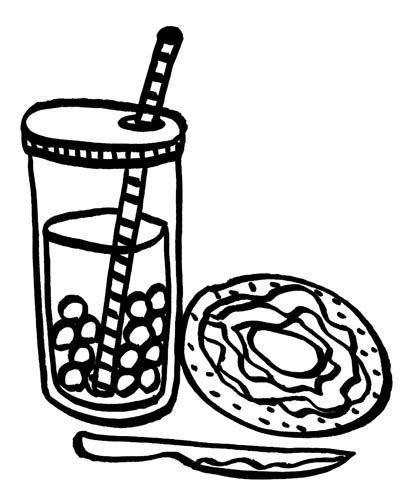
Oh, and also thinking about gelatinous cubes and oozes in the role-playing game sense – because those sort of seem like a weird hybrid between jellies and slime molds, as does The Blob. Any of those amoeba influenced creatures are horrific by their very nature – they don’t even need to be souped up, just ask anyone who’s had dysentery.
And one of the most interesting thing about slime molds is that they can take the shortest path to food even when confronted with very complex barriers. They are maze masterminds and would give the Minotaur more than a run for his money, especially if he had or was food. They have even proven capable of determining the most efficient paths for water lines or railways in metropolitan regions, which is kind of crazy when you really think about it. Check it out in Scientific American here. So, if we assume that this is essentially the model upon which The Blob was built, then it’s kind of a miracle anything got away. And slime molds are coming under closer scrutiny and study as alternative means of creating computer components are being explored.
Jellies are the Wave of the Future.
We are learning that there may be a myriad of uses for jellyfish from foodstuffs to cosmetic products as we rethink how we interact with them. They are even proving useful in cleaning up plastic pollution. I don’t know how I feel about the foodstuff angle for all that they’ve been a part of various recipes for a long time. From what I’ve seen of the jellyfish cookbook recipes, they just don’t look that appealing. But then again I hate boba with a passion, so I’m probably not the best candidate to consider the possibility.
So it seems that jellies are kind of the wave of the future as we find that they can help solve our problems. That’s pretty impressive for some brainless millions of years old critter condiments. Past – present – perpetuity! Who knows what else we’d have found if evolution hadn’t cleaned out the fridge every so often?
Feel free to check out more Nightmarish Nature here.
Original Series
Lucky Lucky Wolfwere Saga Part 4 from Jennifer Weigel
Published
2 weeks agoon
March 17, 2025Continuing our junkyard dawg werewolf story from the previous St. Patrick’s Days… though technically he’s more of a wolfwere but wolfwhatever. Anyway, here are Part 1 from 2022, Part 2 from 2023 and Part 3 from 2024 if you want to catch up.
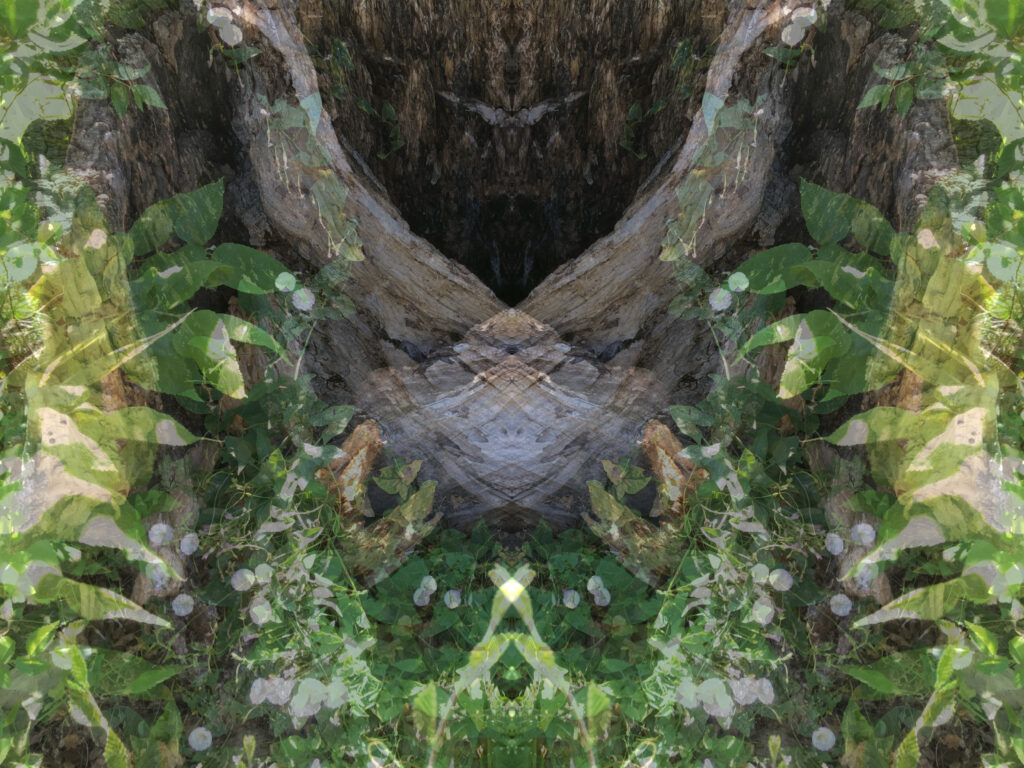
Yeah I don’t know how you managed to find me after all this time. We haven’t been the easiest to track down, Monty and I, and we like it that way. Though actually, you’ve managed to find me every St. Patrick’s Day since 2022 despite me being someplace else every single time. It’s a little disconcerting, like I’m starting to wonder if I was microchipped way back in the day in 2021 when I was out lollygagging around and blacked out behind that taco hut…
Anyway as I’d mentioned before, that Scratchers was a winner. And I’d already moved in with Monty come last St. Patrick’s Day. Hell, he’d already begun the process of cashing in the Scratchers, and what a process that was. It made my head spin, like too many squirrels chirping at you from three different trees at once. We did get the money eventually though.
Since I saw you last, we were kicked out of Monty’s crap apartment and had gone to live with his parents while we sorted things out. Thank goodness that was short-lived; his mother is a nosy one for sure, and Monty didn’t want to let on he was sitting on a gold mine as he knew they’d want a cut even though they had it made already. She did make a mean brisket though, and it sure beat living with Sal. Just sayin.
Anyway, we finally got a better beater car and headed west. I was livin’ the dream. We were seeing the country, driving out along old Route 66, for the most part. At least until our car broke down just outside of Roswell near the mountains and we decided to just shack it up there. (Boy, Monty sure can pick ‘em. It’s like he has radar for bad cars. Calling them lemons would be generous. At least it’s not high maintenance women who won’t toss you table scraps or let you up on the sofa.)
We found ourselves the perfect little cabin in the woods. And it turns out we were in the heart of Bigfoot Country, depending on who you ask. I wouldn’t know, I’ve never seen one. But it seems that Monty was all into all of those supernatural things: aliens, Bigfoot, even werewolves. And finding out his instincts on me were legit only added fuel to that fire. So now he sees himself as some sort of paranormal investigator.
Whatever. I keep telling him this werewolf gig isn’t all that it’s cracked up to be, and it doesn’t work like in the movies. I wasn’t bitten, and I generally don’t bite unless provoked. He says technically I’m a wolfwere, to which I just reply “Where?” and smile. Whatever. It’s the little things I guess. I just wish everything didn’t come out as a bark most of the time, though Monty’s gotten pretty good at interpreting… As long as he doesn’t get the government involved, and considering his take on the government himself that would seem to be a long stretch. We both prefer the down low.
So here we are, still livin’ the dream. There aren’t all that many rabbits out here but it’s quiet and the locals don’t seem to notice me all that much. And Monty can run around and make like he’s gonna have some kind of sighting of Bigfoot or aliens or the like. As long as the pantry’s stocked it’s no hair off my back. Sure, there are scads of tourists, but they can be fun to mess around with, especially at that time of the month if I happen to catch them out and about.
Speaking of tourists, I even ran into that misspent youth from way back in 2021 at the convenience store; I spotted him at the Quickie Mart along the highway here. I guess he and his girlfriend were apparently on walkabout (or car-about) perhaps making their way to California or something. He even bought me another cookie. Small world. But we all knew that already…
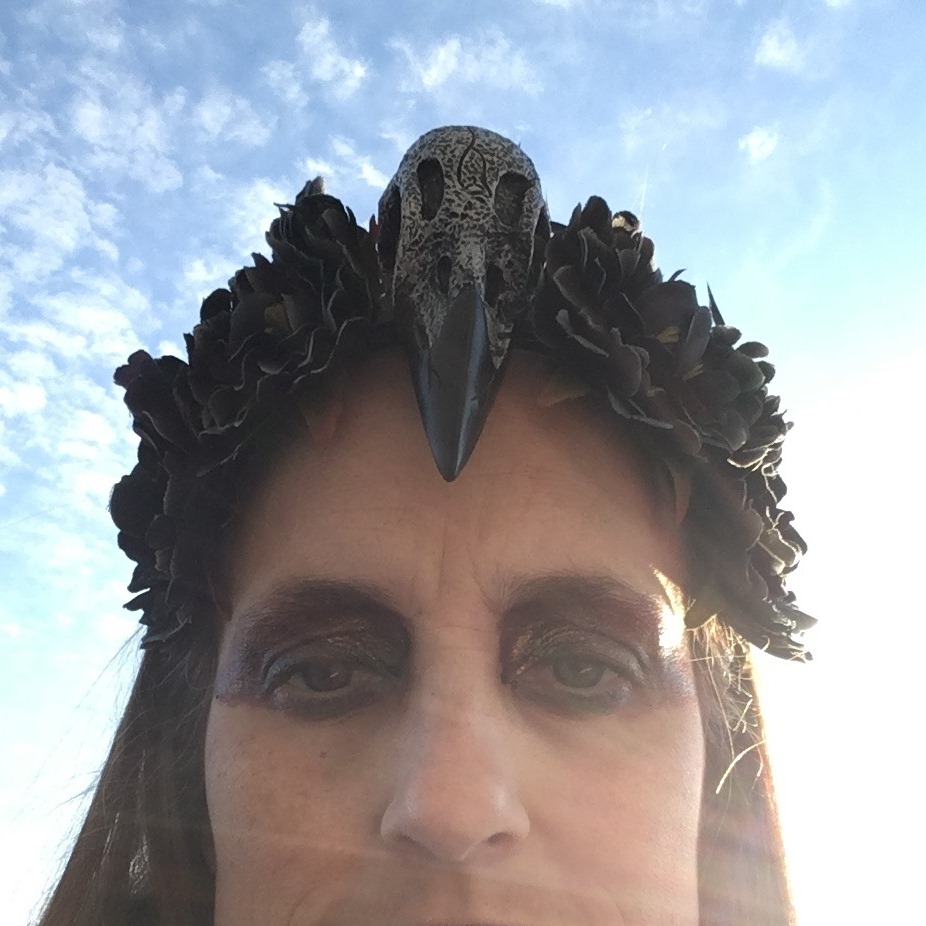
If you enjoyed this werewolf wolfwere wolfwhatever saga, feel free to check out more of Jennifer Weigel’s work here on Haunted MTL or here on her website.


